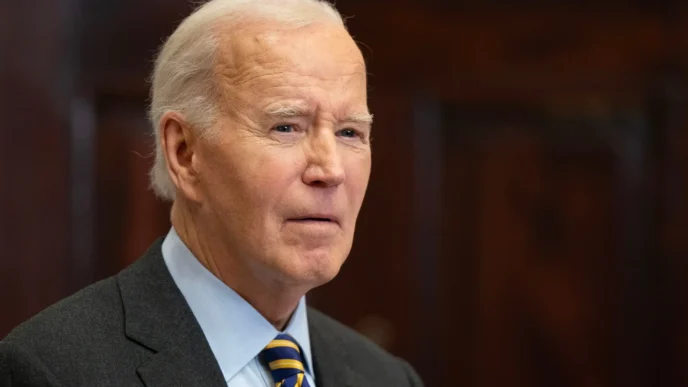The United States has officially lost its final triple-A credit rating from a major agency, as Moody’s downgraded the U.S. long-term credit score on Friday, May 16.
The downgrade, from Aaa to Aa1, was attributed to mounting debt and long-term fiscal challenges.
This move brings Moody’s in line with S\&P and Fitch, which had downgraded the U.S. in earlier years.
According to Moody’s, the decision was based on “the increase over more than a decade in government debt and interest payment ratios to levels that are significantly higher than similarly rated sovereigns.”
This fiscal shift has raised concerns about America’s ability to manage its growing debt effectively.
In addition, the agency projected a sharp rise in federal deficits.
It estimated that by 2035, deficits could rise to nearly 9% of the country’s gross domestic product (GDP), up from 6.4% in 2023.
This increase is expected due to high interest payments, growing costs for entitlement programs, and slow revenue growth.
Furthermore, Moody’s projected that the U.S. debt burden could reach 134% of GDP by 2035.
That is a significant increase from 98% recorded in the previous year.
The downgrade came on the same day that a key spending bill backed by President Donald Trump failed to advance in Congress.

The bill, which includes a massive extension of the 2017 tax cuts and deep Medicaid cuts, was blocked by Republican lawmakers who opposed its cost.
The White House quickly reacted to the downgrade, criticizing Moody’s and targeting Mark Zandi, chief economist at Moody’s Analytics.
“Nobody takes his ‘analysis’ seriously. He has been proven wrong time and time again,” stated White House communications director Steven Cheung on X.
Meanwhile, the downgrade adds to previous warnings from other rating agencies.
S\&P downgraded the U.S. in 2011 due to lack of political unity on debt decisions. Fitch followed in 2023, citing declining governance and fiscal management.
Moody’s stated that both Congress and past administrations have failed to make impactful decisions to cut deficits and reduce spending.
“America’s fiscal performance is likely to deteriorate relative to its own past and compared to other highly-rated sovereigns,” the agency reported.
The downgrade stirred responses from lawmakers across party lines.
Republican Congressman French Hill, who chairs the House Financial Services Committee, emphasized the need for reform.

“This is a strong reminder that our nation’s fiscal house is not in order,” he said.
Democratic Congressman Brendan Boyle pointed fingers at Republican strategies, blaming them for worsening the country’s fiscal health.
“The question is whether Republicans are ready to wake up to the damage they’re causing,” Boyle remarked.
However, in what seems like a silver lining, Moody’s shifted the U.S. credit outlook to “stable”.
The agency noted that the U.S. still benefits from strong economic fundamentals.
These include the large size of its economy and the global dominance of the U.S. dollar.
While the downgrade is a warning signal, it also presents an opportunity for American leaders to take decisive action.













